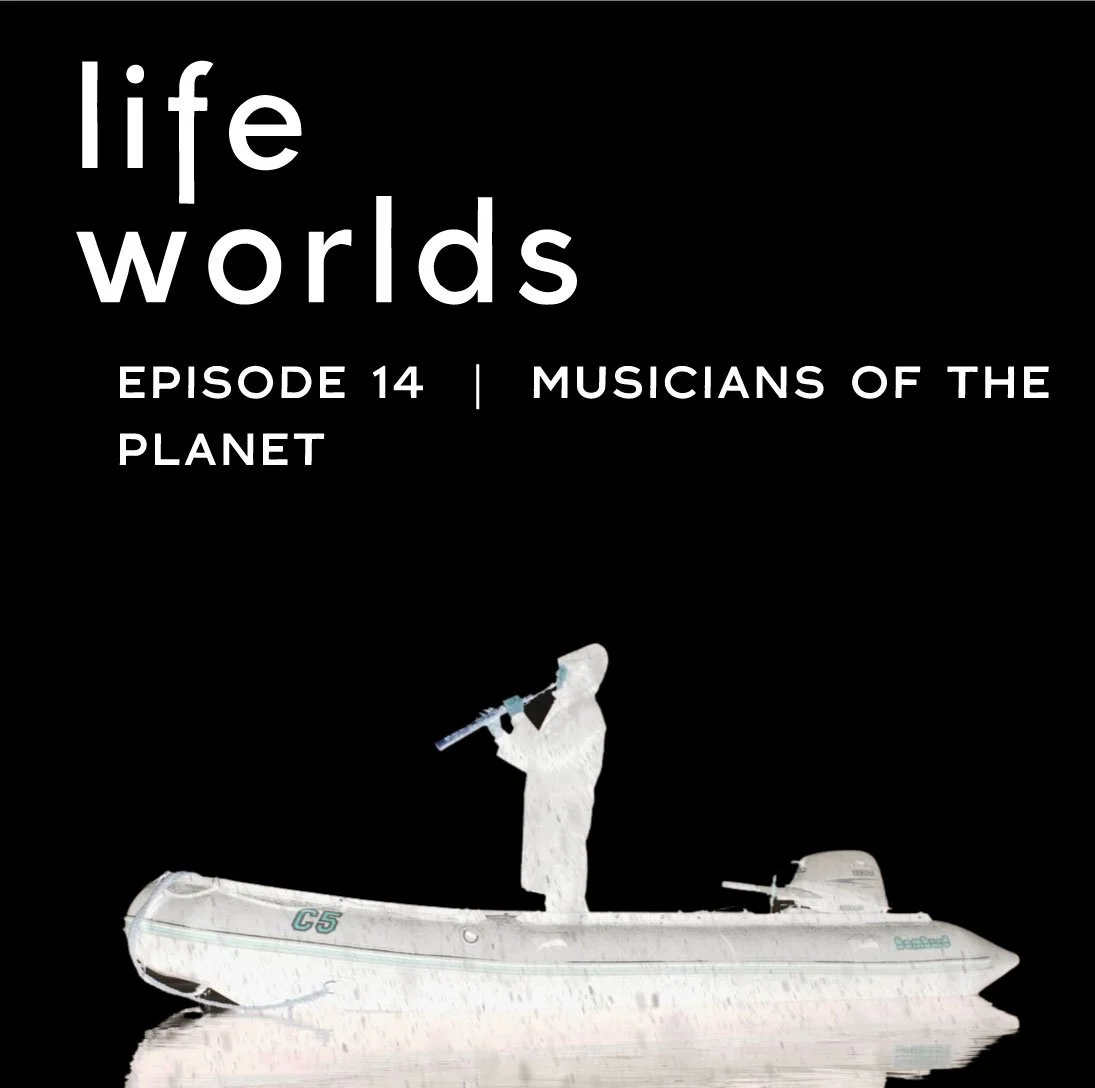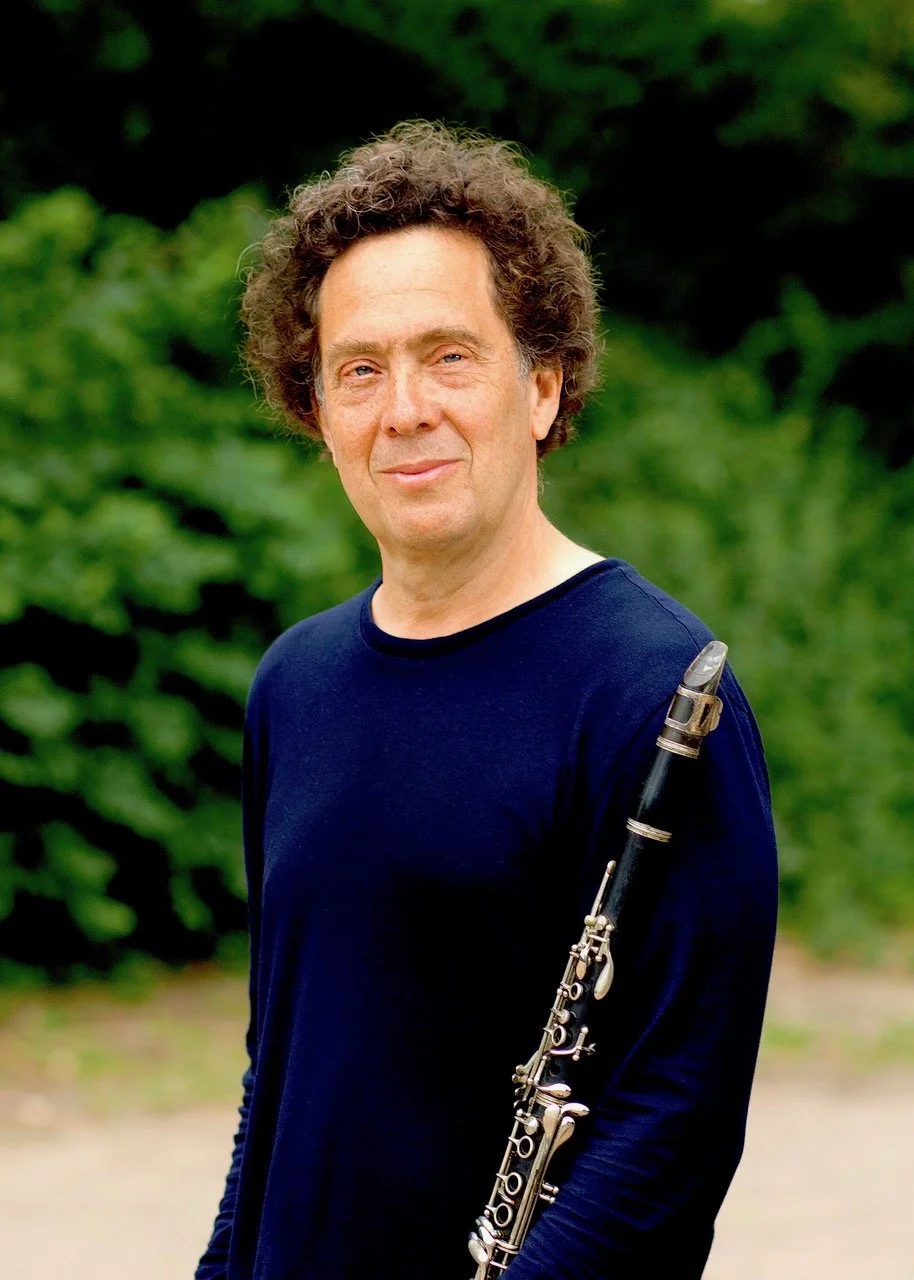14. Musicians of the Planet: On Making Interspecies Songs – with David Rothenberg
“Phenomenology is about trying to let the things come to you and to enter world without preconceptions. If you're used to improvising, you want to get to that sense of no preconception, the inability to rehearse for the unknown, the openness to what's there, to just relate to it.”
- David Rothenberg
SYNOPSIS:
A clarinet plugged into an underwater hydrophone, playing with liquid humpback whale songs below the surface. A huddled group of musicians under a night-time forest in Berlin, singing with nightingales. A 17-year swarm of cicadas alighting upon a sole jazz musician. These are the scenographies that David Rothenberg provokes with his interspecies music compilations, asking us, why should we only play music with other humans and not improvise along with the original musicians of the planet herself?
For human music and song emerged from a world that sings, hums, beats, chirps, and human translations of these sounds have captured our imaginations from our tribal origins through to the first recordings of humpback whales that spurred anti-whaling conventions in the 70s and electronic synthesizers.
Today’s episode brings us into this creative engagement with the planet, exploring how we are transformed when we open up to a world of music, beauty and art created by nature every day. So my friends, listen wider, expand your sense of music, and have David Rothenberg, interspecies musician, writer, and philosopher, show us how to become not just passive listeners but active participants in the symphony.
GUEST BIO:
David Rothenberg has written and performed on the relationship between humanity and nature for many years. He is the author of Why Birds Sing, on making music with birds, also published in England, Italy, Spain, Taiwan, China, Korea, and Germany. It was turned into a feature length BBC TV documentary. His following book, Thousand Mile Song, is on making music with whales. It was turned into a film for French television.
As a composer and jazz clarinetist, Rothenberg has at least thirty albums out under his own name, including On the Cliffs of the Heart, named one of the top ten releases by Jazziz Magazine in 1995 and a record on ECM with Marilyn Crispell, One Dark Night I Left My Silent House. Other releases include Why Birds Sing and Whale Music. He invited many musical colleagues to join him on Whale Music Remixed, with contributions from noted electronic artists such as Scanner, DJ Spooky, Lukas Ligeti, Mira Calix, Ben Neill, and Robert Rich.
Rothenberg has a podcast series called Soundwalker. His latest streamed concerts are on his Youtube channel.
David Rothenberg is Distinguished Professor of Philosophy and Music at the New Jersey Institute of Technology, which has encouraged and supported all of his creative projects since 1992.
QUOTES:
It's clear that people love melodies. We love rhythms, we love patterned, repeating shapes of sound. And living creatures have been making rhythms, melodies, noises, musical collections of phrases and sound for millions of years, before there were ever humans on this planet.
Some people in music want to find the classics, the true “great things” that have stood the test of time. Well, we know the sounds of birds and insects, of cicadas and nightingales, of humpback whales... These have stood the test of time.
So why not consider that our love of the beat comes from bugs. That our love of melody might come from birds.
Take any sound that's around you seriously, because if you drop in deeply enough, it can become art, it can become enjoyment, it can become music.
All of these involved not just listening to the music of nature, but joining in, playing along, trying to make sense as a participant.
When you play along with nightingales and humpback whales, you learn how to join in with them and make a music that no one species could make alone. I don't know if the humpback whales or nightingales care about this music, but together we're making something that has never happened before.
Phenomenology is about trying to let the things come to you and to enter world without preconceptions. If you're used to improvising, you want to get to that sense of no preconception, the inability to rehearse for the unknown, the openness to what's there, to just relate to it.
It makes the world so much more beautiful, so much more alive. You're tapping into beauty that otherwise you might have overlooked.
I'm as intrigued as anyone else about the possibilities of big data and new forms of intelligence. But before all that, and still more important than all the data in the world, is our own senses and perception. We can learn to be better listeners.
Have a sense of humility. Don't listen more than you play. Step back. Don't play your usual music. Be open to something new. Don't make your your own music louder than the animals. Be quieter. Have them set the guide. Learn something.
SHOW LINKS
CREDITS
Songs: All the nightingale songs are from David, and the Monkey Chant is from "Kecak from Bali," Bridge Records




![[Full Length] Unexpected Agricultures — with Lyla June Johnston](https://images.squarespace-cdn.com/content/v1/61e5960411275129ba0c607d/1658128435444-KBCFLKI45Y754WXVUYCZ/Agriculture-Lyla.jpg)
![[Full Length] Unexpected Agricultures — with Michael Ableman](https://images.squarespace-cdn.com/content/v1/61e5960411275129ba0c607d/1658129338344-U3GK0WTQJL9YQU1DIPVK/Agriculture-Michael.jpg)